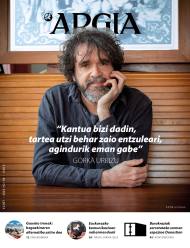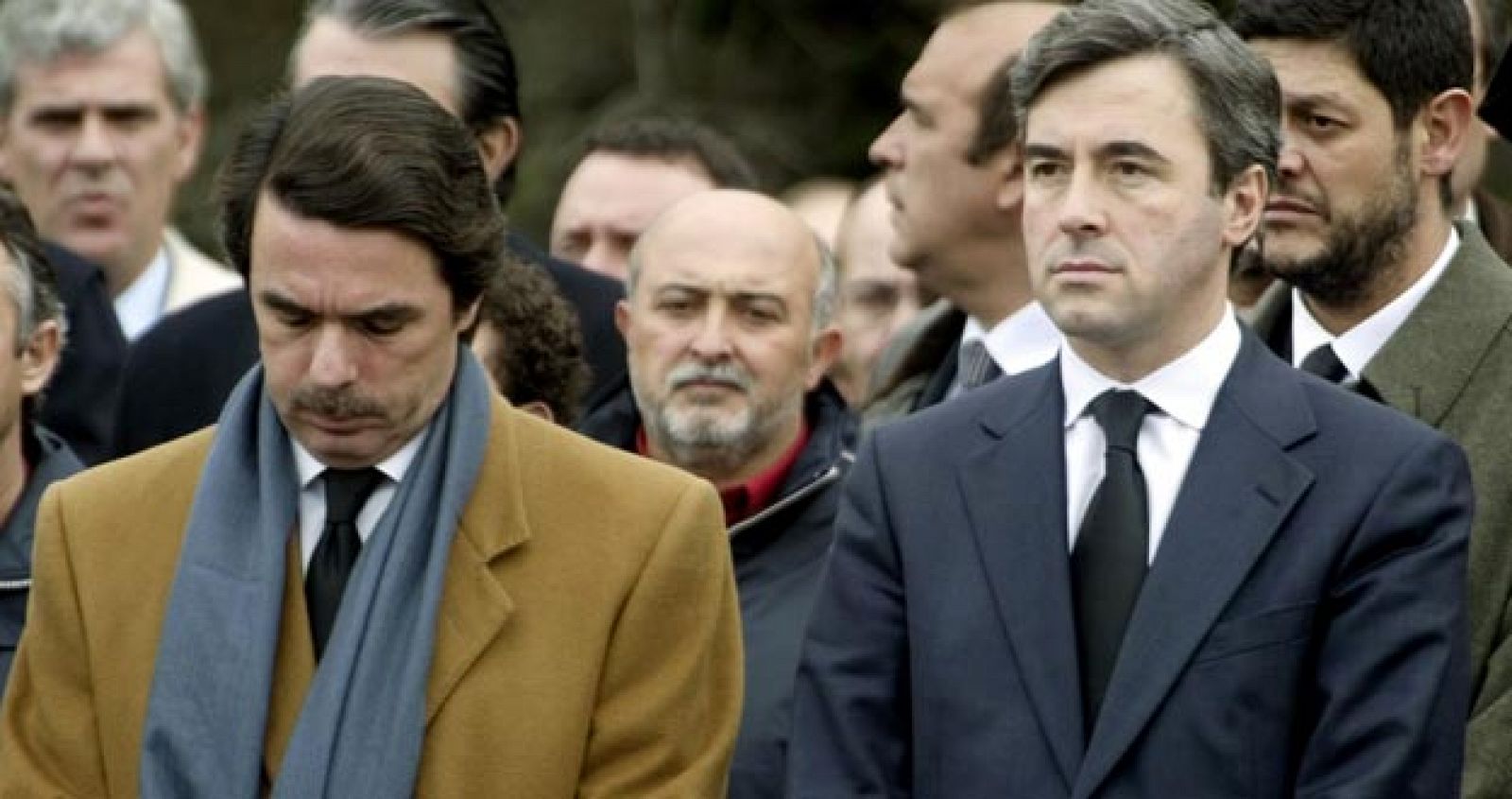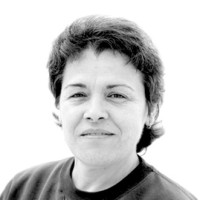"We built bridges with Islamic State women for dialogue, but we had to be honest and not be lying."
- Lara Vilanova (1983, Barcelona) is director of photography and The Return: He has participated in films like Life after ISIS, Sinjar, Strings or Arenas. In December he visited Euskal Herria to participate in the Purple Meridians meetings in Durango.
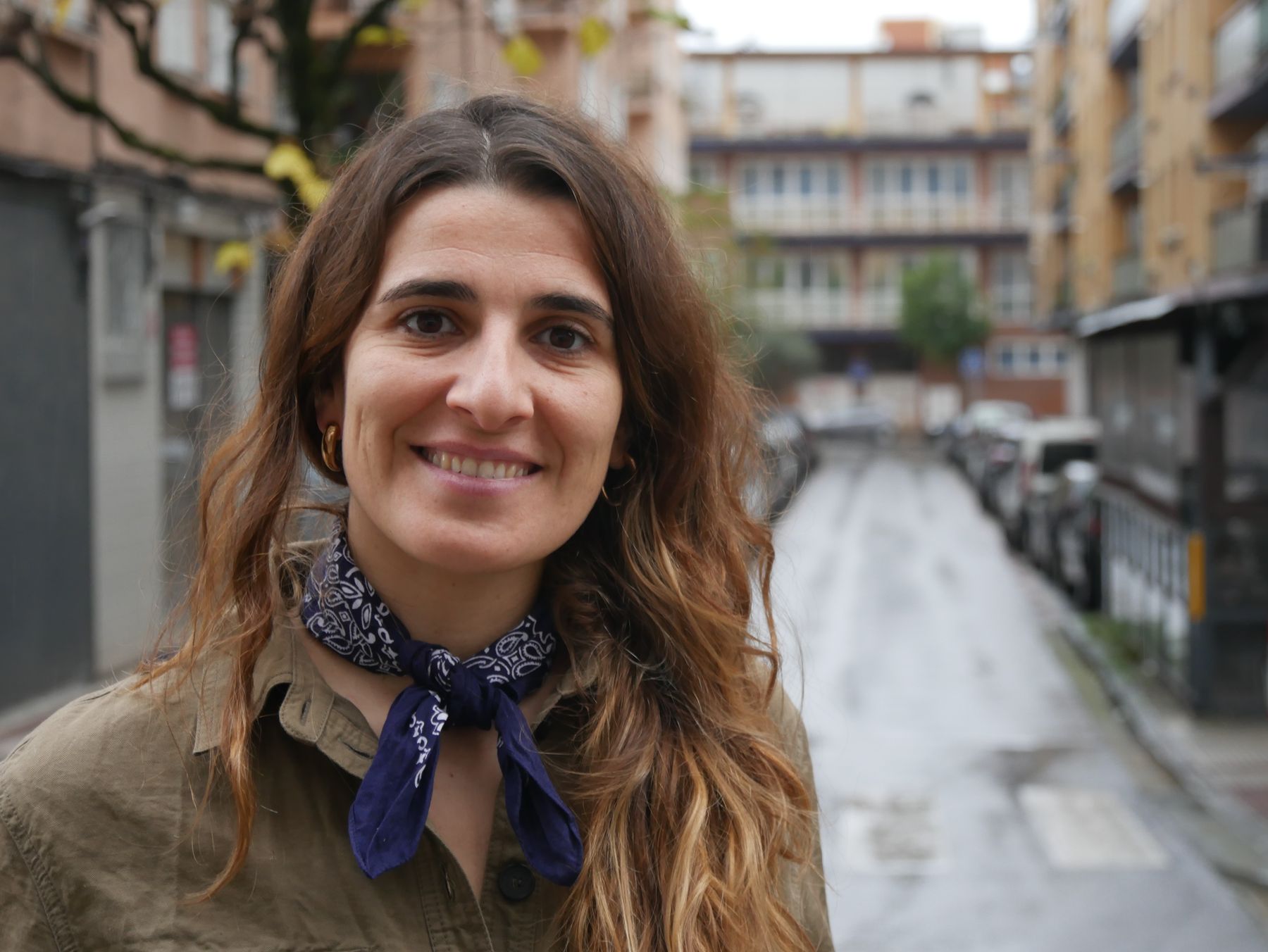
From what point of view have you participated in the Purple Meridians conference?It is important to participate in this type of cultural meetings, to speak, to denounce… Doing so in the context of the
Durango Fair demonstrates that culture is a powerful tool and I have connection with this initiative from the beginning. This is the third edition of the Alternative festival. It is an important event both in the field of author cinema and experimental cinema.
Olot was the second edition. I couldn't participate, but I did the relationships. In fact, this meridian – Purple Meridians – initially connected Catalonia, Italy and Kurdistan. More and more territories and women come together and the meridian spreads.
In principle, meetings are not just for debate. It's about fostering collaboration, creating synergies and showing our audio-visual in the world. Our geopolitical position is active and internationalist, because culture and politics are integrated together.
So my participation has to do with my work, in Kurdistan or in Iraq. I mean, my first project was with Alba Sotorra and I know they did it at ARGIA. I entered Rojava thanks to Alba, and for me, the revolution that is being made is the most important in the world, because they are trying to build real democracy, environmental and feminist.
How was The return: Making Life after ISIS? They were in the Roj Camp area. The Syrian Kurds, which are allegedly less radicalized, are detained there by foreign women from the Islamic State.
We arrived in Rojava when Kalifate was about to disappear, in 2018. Its existence was just a tragedy. In Syria, no one did anything not to consolidate the Islamic State and answer a question that for us the documentary should serve: How can women from different parts of the world – from the Spanish State, from Germany – travel to Syria to participate in such a cruel Islamic state with women and humanity in general? This led to more questions. These women are now in the camps controlled by Kurdue and the Kurds are striving to maintain them, although these people have murdered their relatives. We do not know to what extent they participated in the Caliphate and also the lie is always there.
We therefore decided to stress the responsibility of the countries of origin. How have they not been repatriated? Why have they not taken charge and tried? Why have they been taken away from their nationality? They have become a burden of Kurds.
It talks about lying and some ethical knots. How was their relationship with these women in the Islamic State? In fact, they are presented as victims because the Coalition has bombed them, but they completely forget the character of the Caliphate.
When you go to a conflict camp, you just think you're ready, but you're not, and the contradictions come up quickly. For example, how do you physically present yourself? How to dress, how to speak?
"How
can women from
different corners of
the world travel to
Syria to participate in such a cruel Islamic state with women and
humanity in general?"
We are very closely involved with the Rojava movie bath, as well as with other institutions. Sevinaz Evdique, from Rojava and writer, also collaborated. He and Alba clarified all the doubts we had between them.
We had to have a single month, but in the end there were two of us needed to get the threads that we wanted. On the other hand, when you are in a conflict camp not everything is possible when you want, difficulties arise, but Sevinaz opened the doors of his house and his family, and we had the support of people moving around Rojava cinema.
Not only did we participate in the documentary. For example, our sound technician stayed there. He helped me understand the situation. For there we were bombing the last land of the Caliphate. This led to debates between us. The documentary was not isolated, but part of the whole experience.
It is true that what is interesting is that local filmmakers tell their stories, but going outside helps to open up the situation and we cannot forget that the situation in Rojava, such as the massacre in Gaza, is the result of the international situation and is the responsibility of all.
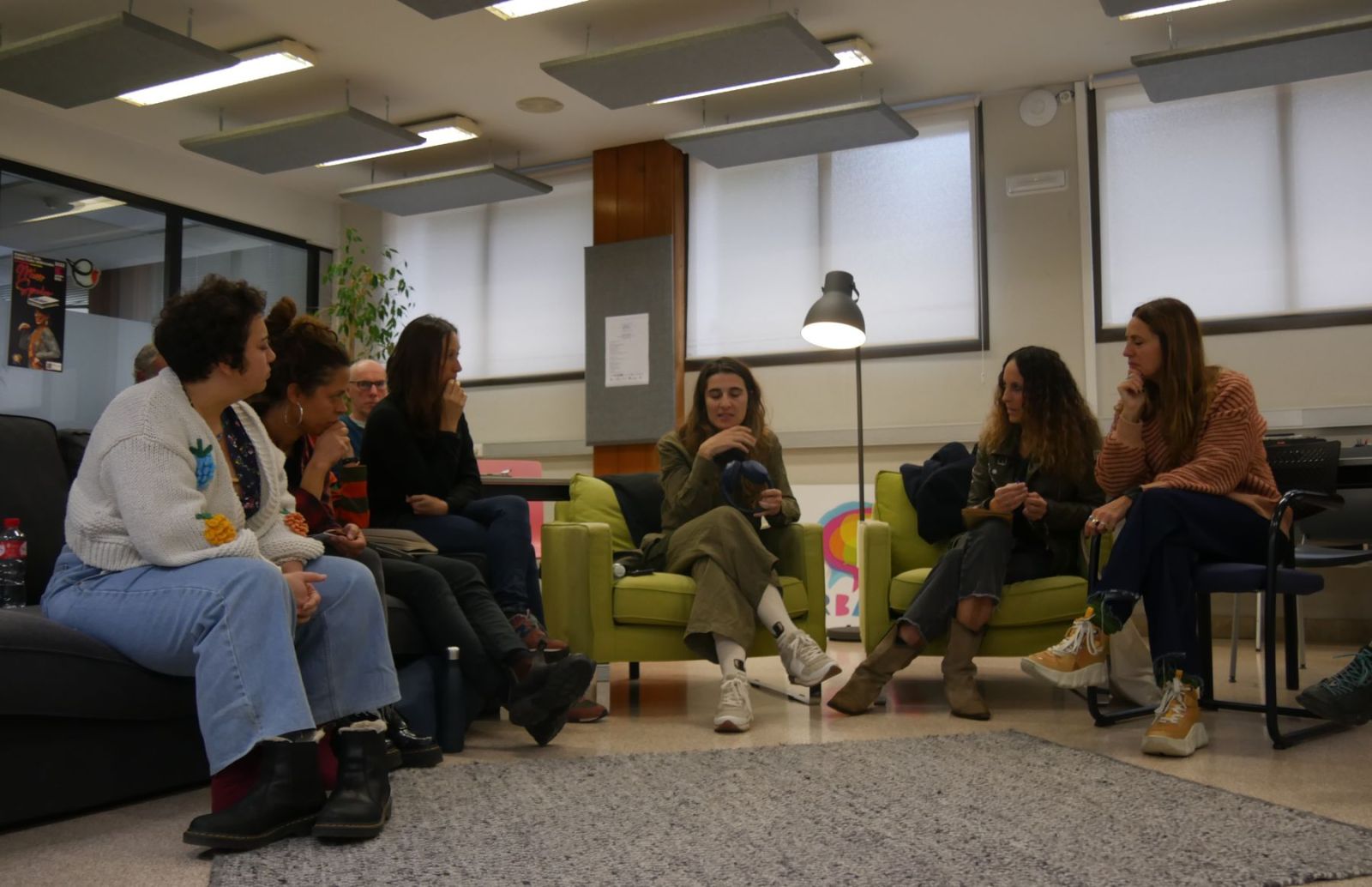
When they arrived in Rojava, they opened their doors, but that heat has nothing to do with the welcome of the women of the Islamic State. In the detention of Al Hol and the refugee camp, EI-SEV women have created a lot of violence and have killed several people. What was this change like?
The process is emotionally arduous. It doesn't ask so much where to put the camera, but what the point of view will be. It cannot be neutral. That would not be true. However, it can build bridges for dialogue, not to offer second or third options. That was not our idea. The important thing was to see among their lies, because they themselves have automated those thoughts and those lies. They also have internal contradictions, but we cannot lie because it would not be honest with our objectives.
However, we find a point of view to talk to them. In other words, how can the countries of origin not take responsibility and judge? We were honest to talk and work, with the love that the Kurds always gave us, we took the community force that gave them their revolution in the message of being firm and not in the lies of confusing.
We all have the right to be tried in our country of origin. In order not to lose the north, we focus on that discourse.
The return: After Life after ISIS, she went to another film that was right on the opposite side: Sinjar. This work puts on the table one of the realities that hides the lies of women in the Islamic State: the anti-acid genocide.
Yes. It's a fictional piece. Ana Bufarui has five or six films that have always been rejected because her geopolitical discourse is very clear. He writes his scripts and focuses on the voices of female entrepreneurs. It does not justify it, for him politics and culture are closely linked. He always raises the powders and may or may not be right, but he is not afraid to generate debate. We spent a month recording in Iraq, and COVID-19 took us full. We closed in a house, the embassy sent us to a house and threw us from there on a military plane, unfortunately militarized.
In Sinjar, Rojava Common Cinema had nothing to do with it. This was close to Mosule and we worked mainly with locals in every way: artistic, narrative, script, knowing how they saw the story…
It's a fiction film, though it's based on reality. However, the Islamic State really kidnapped one of the protagonists and we have presented its experience. However, this helped to act in the most demanding and faithful way possible, because it was sensitive. His participation made us very happy because art sometimes helps mine emerge. It was a process of mutual help and community creation among all of us, all of us women.
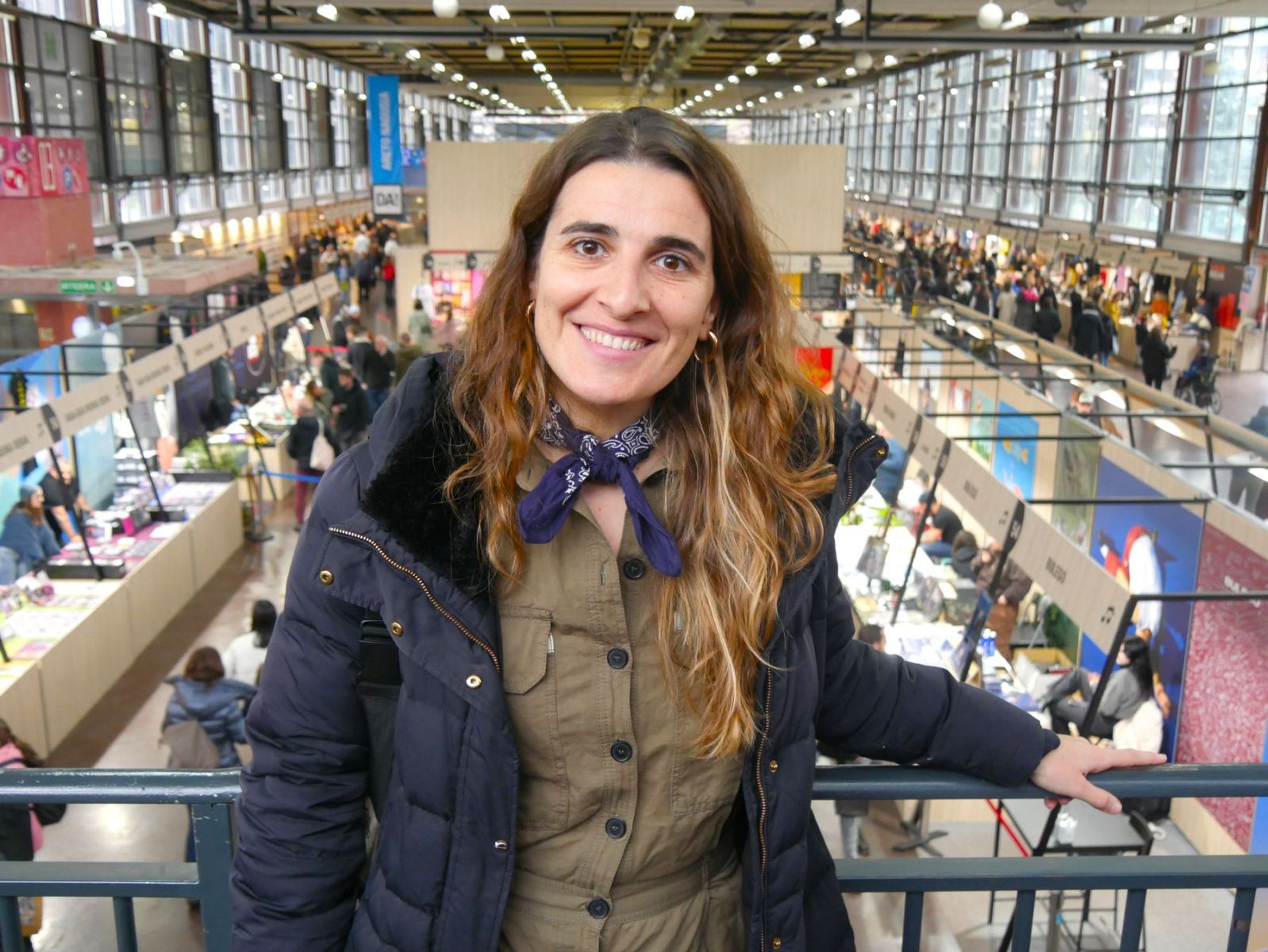
You have just mentioned surveillance, even indirectly, the Purple Meridians meeting has two axes, areas of conflict and surveillance. You have participated in a project of Euskal Herria, very related to him, Strings.
Yes, in the Basque Country with Strings and Remains of Esti Urresola. In fact, the latter is dedicated to surveillance. She has won many awards and the question she asks is who will take care of when the caregivers disappear. Who does care depend on?
"We cannot forget that the situation in Rojava, such as the massacre in Gaza, is the result of the international situation and is the responsibility of all"
As for Strings, I found it very nice to see that in the same creative process care appeared. It wasn't just talking about that. The film shows strong, older women. They appear nicknamed, and I think that's inspiration. In fact, older women are often associated with their problems when they appear in films; mines, diseases, vulnerabilities, need for help... but on Strings they are not. Esti did very well, forced the viewer to face it, and surveillance came up and has stayed in the recording itself. On the main actor's birthday, the whole team calls you to congratulate, for example. There is something that has lasted after the film and stays in life.
Going back to the areas of conflict, I think you have an open debate on that in your head, right?
Yes, we are living almost directly the massacre in Gaza and the war in Ukraine, and I do not know if all those images are necessary to raise awareness. Many don't need them to be conscious, but it's true that numbers and numbers don't reflect everything, and that's what the images are for. However, I believe that sometimes these raw images lead people to lose sensitivity rather than to raise awareness. I am not clear, but we always have to express disagreement with the genocides on the attitude of our governments. We must denounce the prizes awarded by the Spanish Government to Israel and act clearly: there can be no confusion in public opinion when genocide is taking place.
In this regard, for example, I believe it is the Ada Colau model, which is denouncing the situation with the means at its disposal.
Irakurleak badaki 2015eko Parisko atentatu izugarrien auzia hurbiletik segitzen dudala, eskura dauzkadan prentsa baliabideei esker. 130 herritarren herioa eragin zuten komandoetatik bizirik ateratako kide bakarra Salah Abdeslam izan zen eta bere bizkar datza justizia egin... [+]
Urtarrilaren 20an Siriako Ipar eta Ekialdeko Autoadministrazioaren menpe dagoen Hasake hiriko espetxeari eraso diote auto suizidekin, milaka islamista askatzeko. YPGk kontrola berreskuratu arren, tiroketek jarraitzen dute, Daex-eko zenbait kide ezkutatu baita.
Jose Manuel Villarejo espainiar polizia ohiak adierazi ostean Espainiako inteligentzia zerbitzuek 2017ko atentatuak gerta zitezen utzi zutela, Kataluniako Gobernuak zer gertatu zen ikertzeko exijituko dio Espainiako Gobernuari. Halakorik egin ezean, auzia nazioarteko... [+]
Parisen eta Saint-Denisen egindako atentatuetan 130 lagun hil eta 400 zauritu zituen Estatu Islamikoak (EI). Irailaren 8an hasiko da hogei akusaturen aurkako epaiketa, eta zortzi hilabete iraungo du. Hamaika akusaturi biziarteko zigorra ezarri nahi diete.









